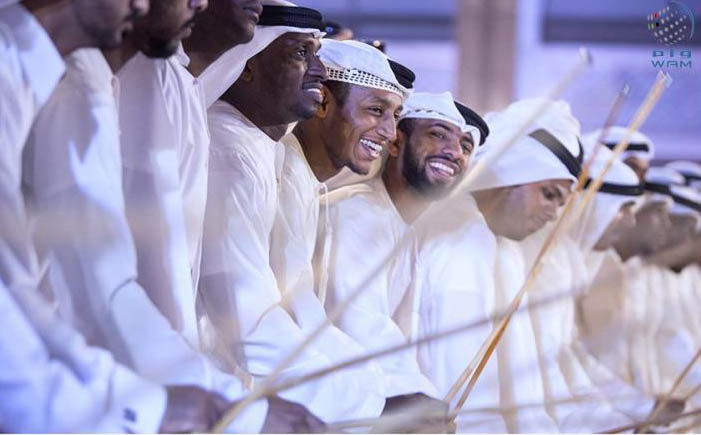ID :
396622
Thu, 02/11/2016 - 08:37
Auther :
Shortlink :
https://oananews.org//node/396622
The shortlink copeid
Qasr Al Hosn Festival brings to life seven cultural Emirati practices recognised by UNESCO

ABU DHABI, 11th February, 2016 (WAM) -- The Qasr Al Hosn Festival, organised by Abu Dhabi Tourism and Culture Authority, TCA Abu Dhabi, is presenting intangible cultural heritage elements that have been recognised by UNESCO on its Representative List of the Intangible Cultural Heritage of Humanity, as part of its public engagement programme.
Offering visitors a complete immersive cultural experience, the Qasr Al Hosn Festival programme is currently hosting live exhibits of Majlis, (or place of sitting); ‘Gahwa’ (Arabic coffee); Al Razfa, a traditional performing art that combines music, chanted poetry and rhythmic movement originally used in victory celebrations in the UAE; Falconry; Al Taghrooda, a form of chanted poetry that is considered a traditional performing art and a symbol of cultural creativity of the UAE; Al Ayyala, Emirati traditional performance which is represented by two rows of men facing each other holding bamboo sticks as they chant poetry and move rhythmically to the beat of a drum; and Al Sadu, a distinctive form of weaving and involves the making of fine furniture, as well as decorative accessories featuring lines and geometric patterns in bold traditional colours.
All these cultural practices are integrated in a range of interactive activations and workshops throughout the Festival in the different popular zones - Desert, Oasis, Marine and Abu Dhabi Island, as well as in the Cultural Foundation and Qasr Al Hosn Fort.
Reem al Mansouri, Public Engagement Programmer at TCA Abu Dhabi, said, "We take pride in the fact that Qasr Al Hosn Festival is the embodiment of our effort as a nation to preserve our heritage. Conservation specialists are working tirelessly to safeguard the Qasr Al Hosn Fort and the Cultural Foundation Building. In parallel, a wide programme curated by cultural and heritage specialists is reflecting our intangible heritage and by passing essential knowledge to generations who will carry this nation’s legacy into the future."
UNESCO’s Representative List recognises intangible cultural practices as important traditions such as music, poetry and dance that need to be preserved. The List includes what is referred to as "intangible cultural heritage"- the cultural traditions, practices, and expressions that are passed down through generations within a culture. The List serves to raise awareness of the importance of these cultural practices as well as to protect these traditions against the ever-growing globalisation. – Emirates News Agency, WAM -http://www.wam.ae/en/news/emirates/1395291408248.html





